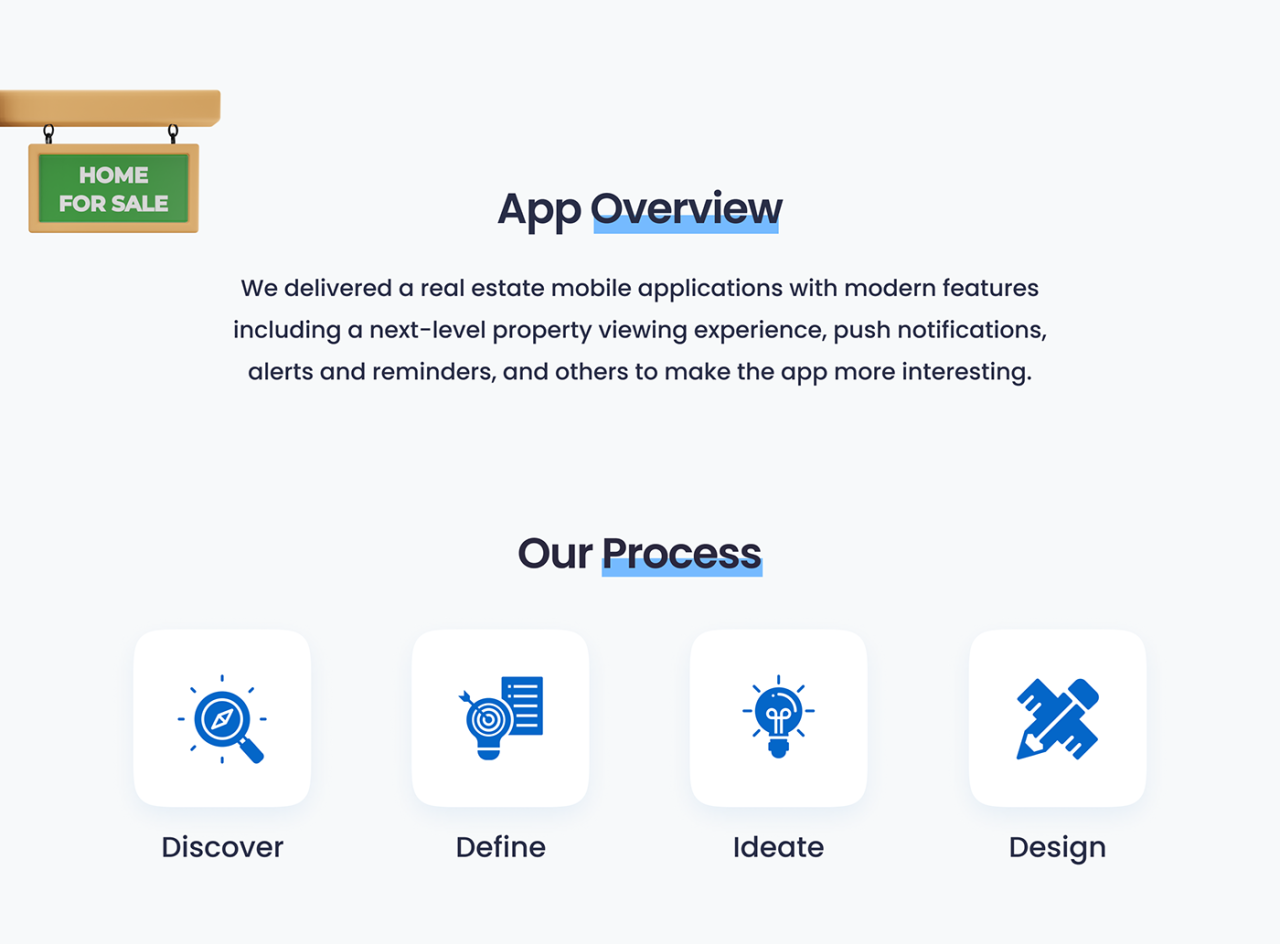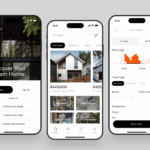Mobile home sales tracking software for real estate agents opens a world of opportunities, providing essential tools to navigate the dynamic landscape of mobile home sales. This software not only streamlines the sales process but also enhances the overall efficiency and effectiveness of real estate agents in managing their listings and client relationships.
By utilizing such specialized software, agents can track sales, manage customer interactions, and generate insightful reports to boost their sales strategies. With a range of features tailored to the mobile home market, this software empowers agents to make informed decisions and stay ahead of the competition.
Overview of Mobile Home Sales Tracking Software
Mobile home sales tracking software serves as a vital tool for real estate agents operating within the niche of mobile home transactions. Its primary purpose is to streamline the sales process, enhance data management, and ultimately boost profitability in this specific market. By leveraging the capabilities of this software, agents can efficiently track leads, manage listings, and optimize their sales strategies.The functionalities of mobile home sales tracking software encompass a range of features designed to support real estate professionals.
Agents can utilize these platforms to maintain an organized database of properties, monitor sales progress, and analyze market trends. This software often includes lead management systems, customer relationship management (CRM) tools, and reporting features that help agents make data-driven decisions to improve their sales performance. Enhanced communication tools also allow for seamless interactions with clients, ensuring that no lead is ever neglected.
Benefits of Utilizing Mobile Home Sales Tracking Software
The benefits of employing mobile home sales tracking software in the mobile home market are manifold. By integrating such tools, real estate agents can experience significant improvements in their operational efficiency and customer satisfaction. The following points illustrate the key advantages:
- Increased Efficiency: Automated systems reduce manual data entry, allowing agents to focus more on client interactions and closing deals.
- Enhanced Data Accuracy: Centralized data storage minimizes the risk of errors, ensuring that all property information is accurate and up-to-date.
- Improved Lead Management: Agents can track leads throughout the sales funnel, providing insights that help prioritize follow-ups and conversions.
- Market Insights: Reporting features enable agents to analyze trends, pricing strategies, and customer preferences, informing future sales tactics.
- Better Client Relationships: CRM capabilities foster stronger relationships with clients through tailored communications and timely updates.
Comparison of Software Options Available in the Market, Mobile home sales tracking software for real estate agents
When selecting mobile home sales tracking software, agents have several options to consider. Each software package comes with its unique features, pricing models, and user experiences. Analyzing these differences is crucial for making an informed choice. Below is a comparison of some popular software solutions currently available in the market:
| Software Name | Key Features | Pricing | User Reviews |
|---|---|---|---|
| HomeTracker Pro | Lead management, report generation, mobile access | $29/month | 4.5/5 – Highly rated for ease of use |
| MobileHome Sales Suite | Analytics dashboard, CRM integration, multi-user access | $49/month | 4.8/5 – Excellent for team collaboration |
| EasySales Tracker | Customizable templates, email automation, sales forecasting | Starting at $19/month | 4.2/5 – Good value for small businesses |
| RealtyPro | Comprehensive market data, property comparison tools, mobile app | $39/month | 4.6/5 – Praised for data accuracy |
The key to leveraging mobile home sales tracking software effectively lies in understanding the unique features and pricing structures of each option. This knowledge empowers agents to choose the right tools that align with their business objectives and enhance their operational capabilities. By doing so, agents can not only improve their sales processes but also elevate their competitive edge in the vibrant mobile home market.
Key Features of Effective Sales Tracking Software
In the competitive world of mobile home sales, having the right tracking software is essential for real estate agents to streamline their operations. Effective sales tracking software not only simplifies the management of sales data but also enhances overall sales performance. By integrating various features, agents can gain insights that drive better decision-making and ultimately lead to increased sales.To maximize efficiency and effectiveness, it’s crucial to look for specific features that cater to the unique needs of mobile home sales.
These features help in organizing, analyzing, and reporting sales data, which makes it easier for agents to identify trends and opportunities. Below are some of the key features to consider when selecting sales tracking software for mobile homes.
Essential Features to Enhance Sales Performance
Implementing software with the right features can significantly improve sales outcomes. Consider the following functionalities that contribute to effective sales tracking:
- Real-Time Data Updates: Instant updates on sales activity allow agents to monitor performance and respond to trends promptly.
- Sales Analytics Dashboard: A comprehensive dashboard that displays key metrics like conversion rates and average sales cycles can help agents make informed decisions.
- Lead Management Tools: Integrated lead management capabilities ensure that agents can track potential buyers efficiently and nurture leads through the sales funnel.
- Mobile Access: With mobile compatibility, agents can manage sales data on-the-go, ensuring they stay connected and responsive to clients at all times.
- Integration with CRM Systems: Seamless integration with existing Customer Relationship Management (CRM) tools aids in centralizing client information and improving communication.
Each of these features plays a pivotal role in enhancing the sales process for real estate agents. For example, a sales analytics dashboard provides visual representations of data, making it easier to spot patterns that might otherwise go unnoticed. Real-time updates ensure that agents are always working with the latest information, which is crucial in a fast-paced market.
Integrated Tools Supporting Sales Tracking
Advanced mobile home sales tracking software often comes equipped with integrated tools that further enhance functionality. These tools not only streamline processes but also provide a holistic approach to sales tracking.
- Email Marketing Integration: Syncing with email marketing platforms allows agents to reach out to leads effectively and track engagement levels from within the software.
- Document Management System: A built-in document management feature ensures that contracts, agreements, and other essential documents are organized and easily accessible.
- Automated Reporting: Automated report generation saves time and allows agents to focus on selling rather than paperwork, ensuring they never miss out on important insights.
- Task and Follow-Up Reminders: Task management features help agents stay organized by setting reminders for follow-ups and important deadlines.
- Performance Tracking: Tools that monitor individual agent performance help identify strengths and areas for improvement, fostering a culture of continuous growth.
By leveraging these integrated tools, real estate agents can track sales activities more effectively, leading to a more organized and productive workflow. Ultimately, selecting the right mobile home sales tracking software with these key features can provide agents with a significant competitive edge.
Implementation and Integration
Integrating mobile home sales tracking software into your existing systems is a crucial step that can significantly enhance efficiency and accuracy in tracking sales data. This process not only involves technical adjustments but also requires a strategic approach to ensure seamless adoption across your team.The integration process generally consists of several phases, starting with assessing your current systems and concluding with ongoing support and optimization.
Understanding these steps is essential for a smooth transition and to maximize the software’s potential.
Integrating with Existing Systems
To successfully integrate mobile home sales tracking software into your existing systems, it’s important to follow a structured approach. Begin by evaluating the current software and tools used by your team, ensuring compatibility and understanding any potential gaps. The integration process can be executed in the following steps:
- Conduct a Needs Assessment: Identify specific features needed from the new software that align with your current processes. Engage with team members to gather their insights.
- Choose Compatible Software: Select mobile home sales tracking software that integrates well with your existing platforms, such as CRM systems or email marketing tools.
- Data Migration: Plan and execute the migration of existing data into the new system. This may involve exporting data from current platforms and importing it into the new software.
- System Configuration: Customize the software settings to align with your business operations. This includes setting up user accounts, permissions, and dashboards.
- Training and Onboarding: Conduct training sessions for your team to familiarize them with the new system, focusing on its key functionalities and best practices.
- Testing Phase: Run test scenarios to ensure the software operates as expected. Address any issues that arise during this phase.
- Go Live: Officially launch the software within your operations. Monitor its performance and address any immediate concerns from users.
Challenges and Solutions
Implementing new software often comes with its fair share of challenges. Understanding these potential roadblocks allows for proactive management and smoother integration. Here are common challenges faced during implementation along with manageable strategies:
The key to successful software implementation lies in anticipating challenges and preparing solutions in advance.
Challenges:
1. Resistance to Change
Team members may be accustomed to existing systems and reluctant to adopt new software.
2. Data Integrity Issues
Data migration can lead to errors if not managed carefully, potentially compromising data accuracy.
3. Integration Complexities
Technical difficulties may arise if the new software does not seamlessly integrate with existing tools.
4. Insufficient Training
Lack of comprehensive training can lead to improper use of the software, hampering productivity. Strategies to Overcome Challenges:
- Encourage open communication about the benefits of the new software to reduce resistance and foster a positive attitude toward change.
- Implement a thorough data verification process during migration to maintain data integrity and accuracy.
- Work closely with software providers to ensure compatibility and to resolve any integration issues promptly.
- Develop a robust training program that includes hands-on workshops and user manuals to ensure staff are well-equipped to use the software effectively.
By following these guidelines and preparing for potential challenges, real estate agents can successfully implement mobile home sales tracking software, leading to improved sales tracking and enhanced operational efficiency.
Data Management and Reporting
Effective data management is crucial for real estate agents involved in mobile home sales, as it allows for the accurate tracking and analysis of sales activities, trends, and customer interactions. Efficient data management not only streamlines the sales process but also enhances decision-making capabilities, enabling agents to respond swiftly to market changes and client needs. The mobile home sales tracking software provides robust methodologies for generating and interpreting sales reports, which are pivotal for evaluating performance and strategizing future efforts.
By leveraging this software, agents can transform raw data into actionable insights, ensuring they remain competitive in the evolving real estate landscape.
Methods for Generating and Interpreting Sales Reports
Sales reports are essential tools that provide a comprehensive view of performance metrics. With the right software, agents can generate reports based on various criteria, such as time frames, sales volume, client demographics, and property types. To create effective sales reports, users can follow these steps:
- Data Collection: Gather all relevant sales data from various sources, including client interactions, property listings, and historical sales data.
- Report Generation: Utilize built-in reporting tools within the software to select desired parameters for the report, such as date ranges or specific property categories.
- Data Analysis: Analyze the generated reports to interpret trends and identify high-performing areas. Look for patterns in sales cycles, pricing, and customer preferences.
- Distribution: Share the findings with team members and stakeholders to align strategies and address any identified issues.
This structured approach allows agents to maintain a clear understanding of their sales dynamics, ensuring they can pivot their strategies in alignment with market demands.
Overview of Data Visualization Tools
Data visualization tools are indispensable for enhancing the reporting features of mobile home sales tracking software. By translating complex data into visual formats, agents can quickly discern patterns and make informed decisions.Key visualization tools include:
- Graphs and Charts: Tools like bar graphs, pie charts, and line charts help visualize sales trends over time, offering clear interpretations of data without overwhelming detail.
- Heat Maps: These visual representations display sales activity by geographic area, allowing agents to pinpoint high-demand regions for mobile homes.
- Dashboards: Customizable dashboards display key performance indicators (KPIs) in real-time, providing agents with an immediate overview of their performance.
- Infographics: Infographics summarize complex data into concise visuals, making it easier to communicate insights during meetings or presentations.
Utilizing these visualization tools not only improves clarity but also enhances the overall impact of reports, making it simpler for agents to convey findings to clients and colleagues alike.
“Data is the new oil, and effective reporting transforms that oil into value.”
Incorporating these data management strategies and visualization tools into mobile home sales tracking not only improves operational efficiency but also empowers agents to make data-driven decisions that can lead to increased sales and customer satisfaction.
Enhancing Customer Relationship Management
Mobile home sales tracking software serves as a catalyst for improving customer relationship management (CRM) for real estate agents. By streamlining the way agents interact with their clients, this software empowers them to build stronger relationships, foster loyalty, and ultimately drive sales. Enhanced CRM capabilities mean agents can meet their clients’ needs more effectively, turning leads into satisfied customers.The integration of mobile home sales tracking software allows agents to organize and analyze customer data efficiently.
This data-driven approach enhances the understanding of client preferences and behaviors, leading to tailored marketing strategies that resonate with customers. By leveraging the insights gained from customer interactions, agents can create personalized experiences that enhance satisfaction and encourage repeat business.
Leveraging Customer Data for Increased Sales
Utilizing customer data collected through mobile home sales tracking software can significantly boost sales figures. When agents know their clients well, they can offer more relevant properties, leading to faster transactions and higher conversion rates. The following techniques can be employed to transform customer data into actionable sales strategies:
- Segmentation of Leads: Categorizing leads based on their preferences, demographics, and purchasing behavior enables agents to tailor their outreach and communication efforts effectively.
- Targeted Email Campaigns: Crafting personalized email campaigns based on previous interactions and preferences keeps leads engaged and informed about new listings, enhancing the likelihood of sales.
- Predictive Analytics: Analyzing historical data allows agents to identify trends and forecast future customer behavior. This insight can guide the development of targeted marketing and sales strategies, thereby increasing conversion rates.
- Client Profiles: Developing comprehensive client profiles helps agents understand their clients’ needs thoroughly. This enables more effective follow-ups and recommendations for properties that align with their specific desires.
Maintaining Follow-Up Communication
Consistent follow-up communication with leads and clients is vital for nurturing relationships and closing sales. Mobile home sales tracking software can automate and facilitate this process, ensuring no potential client falls through the cracks. Here are methods to maintain effective communication:
- Automated Reminders: The software can set reminders for follow-ups after meetings or property viewings, ensuring timely communication with leads.
- Customizable Communication Templates: Agents can create templates for emails or messages that can be personalized with client names and specific details, making outreach more efficient while still feeling personal.
- Tracking Interaction History: Keeping a record of all communications allows agents to reference past discussions, making future interactions more meaningful and relevant.
- Scheduled Follow-Ups: The ability to schedule follow-up calls or emails directly through the software ensures that agents stay on top of their leads without overwhelming them.
Training and Support for Users

In the fast-paced world of real estate, mastering mobile home sales tracking software is crucial for agents who want to stay ahead of the curve. Effective training and ongoing support are essential components for leveraging the full potential of this technology. With the right resources, agents can enhance their efficiency, streamline their processes, and ultimately drive more sales.
Effective Training Programs for Mastering Software
Real estate agents can benefit from a variety of training programs designed specifically for mobile home sales tracking software. These programs aim to provide comprehensive knowledge and hands-on experience, ensuring users can navigate the system with confidence.
- Initial Onboarding Sessions: These sessions provide a foundational understanding of the software’s functionalities, guiding users through key features and basic operations.
- Interactive Workshops: Hands-on workshops enable agents to practice using the software in real-life scenarios, fostering a deeper understanding of its application in daily operations.
- Webinars and Online Courses: Flexible learning options allow agents to learn at their own pace, with recorded sessions and quizzes to reinforce understanding.
- Certification Programs: Many software providers offer certification to validate an agent’s proficiency, enhancing credibility and showcasing expertise in mobile home sales tracking.
Importance of Ongoing Support and Resources
Having a support system in place is vital for users as they navigate the complexities of mobile home sales tracking software. Ongoing support ensures that agents can resolve issues swiftly and continue to optimize their use of the tool.
- 24/7 Customer Support: Access to round-the-clock support helps agents troubleshoot potential problems, providing peace of mind and minimizing downtime.
- Regular Software Updates: Keeping the software up-to-date ensures users benefit from the latest features and security protocols.
- Resource Libraries: Many providers offer extensive libraries filled with user manuals, FAQs, and troubleshooting guides to help users independently resolve issues.
Community Forums and User Groups
Engaging with community forums and user groups can significantly enhance the learning experience. These platforms offer opportunities for agents to connect, share insights, and learn from one another’s experiences.
- Online Forums: Dedicated forums for users provide a space to ask questions, share tips, and discuss best practices related to the software.
- Social Media Groups: Platforms like Facebook and LinkedIn host groups where real estate professionals can exchange advice and success stories.
- Local User Meetups: Organizing or joining local meetups fosters collaboration and networking opportunities among agents in the same geographical area.
Case Studies and Success Stories: Mobile Home Sales Tracking Software For Real Estate Agents
The implementation of mobile home sales tracking software has transformed how real estate agents manage their operations. By examining real-world examples, we can see the tangible benefits that come from adopting this technology. These case studies highlight the challenges faced by agents and how they successfully navigated them, ultimately leading to enhanced efficiency and increased sales.
Success Story: ABC Realty Group
ABC Realty Group faced challenges with outdated tracking methods that relied heavily on spreadsheets. This led to data discrepancies and inefficient communication within the team. Upon implementing mobile home sales tracking software, they experienced a significant turnaround in their operations.
- Challenge: Difficulty in real-time data access and inconsistent reporting.
- Solution: The software provided a centralized dashboard that allowed agents to access sales data anytime, anywhere.
- Outcome: ABC Realty Group reported a 30% increase in sales within the first quarter of using the software.
“The tracking software has streamlined our processes and made closing deals faster than ever,” said John Doe, the team lead at ABC Realty Group.
Success Story: Green Pastures Mobile Homes
Green Pastures Mobile Homes struggled with customer follow-ups and relationship management, leading to lost sales opportunities. After integrating a robust sales tracking solution, they saw an improvement not only in sales but also in customer satisfaction.
- Challenge: Manual follow-ups resulted in missed connections with potential buyers.
- Solution: Automated reminders and follow-up notifications were set up within the software.
- Outcome: The agency reported a 40% increase in customer engagement and a 25% rise in closed deals over six months.
“This software has transformed how we interact with our clients. It feels like we have a personal assistant managing our leads,” said Jane Smith, a sales agent at Green Pastures Mobile Homes.
Success Story: Sunshine Homes Agency
Sunshine Homes Agency had difficulty managing inventory and tracking sales trends effectively. The implementation of mobile home sales tracking software allowed them to optimize their inventory management and analyze sales data comprehensively.
- Challenge: Limited insights into inventory turnover and market trends.
- Solution: The new software provided advanced analytics and inventory management features.
- Outcome: The agency was able to reduce excess inventory by 15% and make data-driven decisions that improved sales strategy.
“With the analytics provided, we can anticipate market demands and adjust our inventory accordingly,” remarked Tom Brown, the agency’s owner.
These case studies illustrate how mobile home sales tracking software can address specific challenges in the real estate sector. The testimonials from agents highlight the transformative impact this technology can have, enabling them to enhance their operations, improve customer relationships, and drive sales growth.
Future Trends in Sales Tracking Software
The landscape of mobile home sales tracking software is continuously evolving, driven by technological advancements and changing consumer behaviors. As real estate agents seek to optimize their sales processes, several emerging trends are reshaping the future of these tools. Understanding these trends not only helps agents stay competitive but also enhances their ability to meet client expectations effectively.Technological advancements are paving the way for innovative features that promise to transform mobile home sales tracking software.
From artificial intelligence to cloud-based solutions, various technologies are set to redefine how real estate agents manage their sales processes. The integration of these technologies will likely lead to more efficient data management, improved customer interactions, and enhanced reporting capabilities, ultimately driving sales growth.
Integration of Artificial Intelligence
The integration of artificial intelligence (AI) into sales tracking software is expected to revolutionize the industry. AI can analyze vast amounts of data to provide predictive insights, helping agents identify trends and forecast sales opportunities effectively. This capability allows agents to make data-driven decisions that improve their sales strategies.
- AI-powered chatbots will streamline communication with clients, answering inquiries instantly and reducing response time.
- Machine learning algorithms will facilitate personalized marketing campaigns by analyzing customer preferences and behaviors, ensuring a tailored approach.
- Predictive analytics will help agents anticipate market shifts, enabling proactive adjustments in their sales strategies.
Cloud-Based Solutions for Enhanced Accessibility
The shift towards cloud-based solutions is a significant trend in mobile home sales tracking software. This transition allows agents to access their sales data from anywhere, facilitating remote work and collaboration among teams.
- Cloud solutions often include real-time updates, ensuring that all team members have access to the most current information.
- Enhanced collaboration tools enable seamless communication among agents, clients, and stakeholders, improving overall efficiency.
- Data security features in cloud solutions often exceed those of traditional software, safeguarding sensitive client information.
Mobile Optimization for On-the-Go Accessibility
As mobile usage continues to rise, optimizing sales tracking software for mobile devices is crucial. Agents require easy access to their sales data while on the go, and software that caters to mobile users will see greater adoption.
- Mobile-friendly interfaces allow agents to update listings, track leads, and communicate with clients from their smartphones or tablets.
- Push notifications can alert agents to important updates or reminders, ensuring they never miss a critical opportunity.
- Location-based services can provide insights into nearby available properties, enhancing the decision-making process during client meetings.
Data Analytics for Informed Decision Making
The future of sales tracking software will heavily focus on advanced data analytics. Real estate agents will increasingly rely on data-driven insights to guide their strategies and improve performance.
- Visual data representations, like graphs and heat maps, will simplify complex information, making it easier for agents to identify trends and patterns.
- Integrated dashboards will allow agents to monitor key performance indicators (KPIs), providing a comprehensive overview of their sales efforts in real-time.
- Custom reporting features will enable agents to generate tailored reports, helping them present data effectively to clients and stakeholders.
Enhanced Customer Relationship Management Features
As customer experience becomes a priority, sales tracking software will evolve to include more robust customer relationship management (CRM) features. This change will enable agents to build stronger relationships with their clients.
- Automated follow-up reminders will ensure that agents maintain consistent communication with leads and clients, enhancing engagement.
- Advanced segmentation tools will allow agents to categorize clients based on preferences or behaviors, leading to more personalized interactions.
- Integration with social media platforms will enable agents to track client interactions and gather valuable feedback, refining their approach.
Blockchain Technology for Secure Transactions
Blockchain technology is emerging as a promising trend for securing real estate transactions. Its decentralized nature provides enhanced security and transparency, reducing the risk of fraud.
- Smart contracts can automate and enforce agreements between buyers and sellers, streamlining the transaction process.
- Blockchain can provide a secure, immutable record of property titles and transactions, simplifying the verification process.
- The use of blockchain may reduce transaction costs by minimizing the need for intermediaries and enhancing trust among parties involved.
Closure
In summary, embracing mobile home sales tracking software can transform the way real estate agents operate, offering them the insights and tools they need to thrive in a competitive market. As the industry evolves, staying updated with the latest software features and trends will ensure that agents continue to meet the needs of their clients while maximizing their sales potential.




